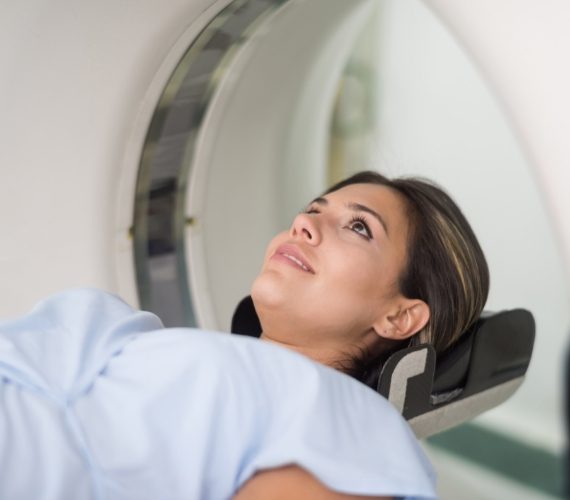Login
Imaging Services
Nuclear Medicine/PET Scanning
Nuclear medicine is used in the diagnosis and management of diseases.
What is Nuclear Medicine?
Nuclear medicine is a medical specialty that uses safe, painless, cost-effective techniques to document the structure and function of organs inside the body. An integral part of patient care at ChristianaCare, nuclear medicine is used in the diagnosis and management of diseases. For example, a positron emission tomography test, or PET scan, is often used to evaluate cancer, check blood flow or see how organs are working.
How Does It Work?
Nuclear medicine uses a very small amount of radioactive materials — called radiopharmaceuticals — to diagnose and treat disease. Radiopharmaceuticals are substances that are attached to specific organs, bones or tissues. The radiopharmaceuticals emit gamma rays that can be detected externally by special types of cameras: gamma or PET cameras. These cameras work in conjunction with computers to form images that provide data and information about the area of the body being imaged.

Services
Nuclear medicine services are currently provided on an inpatient and outpatient basis at Christiana and Wilmington hospital campuses, and Glen Mills.
To schedule an appointment at any of our locations, call 302-733-4600 for our Delaware offices or 610-361-1144 for the Concord Township, PA location. To request an appointment online, please fill out our online form below.
Request a Nuclear Medicine or PET Appointment
To request an appointment by phone, call 302-733-4600 for our DE offices or 610-361-1144 for the Concord Township, PA location.
To request an appointment online, please complete the form below. One of our scheduling coordinators will call you within one to two business days to schedule your appointment.

